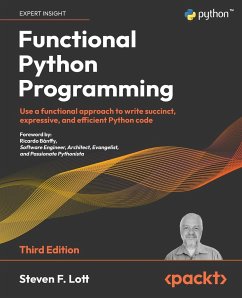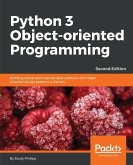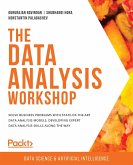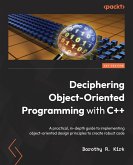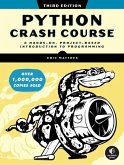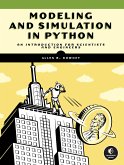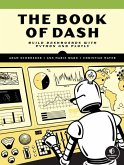"Using this book has propelled my efficiency in solving leetcode challenges." - Discord user, zizu Python isn't all about object-oriented programming. Discover a valuable way of thinking about code design through a function-first approach - and learn when you need to use it. Now with detailed exercises at the end of every chapter! Purchase of the print or Kindle book includes a free eBook in PDF format. Key Features:Learn how, when, and why to adopt functional elements in your projects Explore the Python modules essential to functional programming, like itertools and functools Cover examples relevant to mathematical, statistical, and data analysis domains Book Description: Not enough developers understand the benefits of functional programming, or even what it is. Author Steven Lott demystifies the approach, teaching you how to improve the way you code in Python and make gains in memory use and performance. If you're a leetcoder preparing for coding interviews, this book is for you. Starting from the fundamentals, this book shows you how to apply functional thinking and techniques in a range of scenarios, with Python 3.10+ examples focused on mathematical and statistical algorithms, data cleaning, and exploratory data analysis. You'll learn how to use generator expressions, list comprehensions, and decorators to your advantage. You don't have to abandon object-oriented design completely, though - you'll also see how Python's native object orientation is used in conjunction with functional programming techniques. By the end of this book, you'll be well-versed in the essential functional programming features of Python and understand why and when functional thinking helps. You'll also have all the tools you need to pursue any additional functional topics that are not part of the Python language. What You Will Learn:Use Python's libraries to avoid the complexities of state-changing classes Leverage built-in higher-order functions to avoid rewriting common algorithms Write generator functions to create lazy processing Design and implement decorators for functional composition Make use of Python type annotations to describe parameters and results of functions Apply functional programming to concurrency and web services Explore the PyMonad library for stateful simulations Who this book is for: The functional paradigm is very useful for programmers working in data science or preparing for technical interviews, but any Python developer who wants to create more reliable, succinct, and expressive code will have much to learn from this book. No prior knowledge of functional programming is required to get started, though Python programming knowledge is assumed. A running Python environment is essential.

